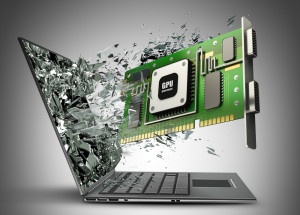
Sam Altman Seeks $7 Trillion to Supercharge Chip Production

(archy13/Shutterstock)
OpenAI Chief Sam Altman is reportedly seeking to raise trillions of dollars to address the massive global shortage in semiconductor chips. The ongoing ship shortage is partly prompted by the rapidly growing demand for GenAI. The chips are used to train the latest large language models (LLMs).
The Wall Street Journal reported that Altman is reaching out to various investors, including the United Arab Emirates (U.A.E), to raise $7 trillion for a highly ambitious tech initiative that would boost the world’s supply of semiconductor chips.
Big tech companies have long complained about the shortages of chips such as the Nvidia H100, one of the most popular AI chips on the market. The shortage and steep price of AI chips have led several big tech companies to put their own AI chips on the table.
If Altman is successful in his ambitious plans to raise trillions of dollars, he could help boost the world’s chip-building capacity and make the price of AI chips more competitive.
U.A.E has been at the forefront of AI investment in the Middle East. According to a recent PWC report, the impact of AI for the region is forecasted to be around $320 billion. Altman has been quick to capitalize on this growing interest in the UAE. He has met with several senior government officials in the country including the country’s national security advisor Sheikh Tahnoun bin Zayed al Nahyan. He is also the brother of President Mohamed bin Zayed al Nahyan.
As part of his fundraising campaign, Altman also met with other key players in the industry including Taiwan Semiconductor Manufacturing Co. (TSMC) and SoftBank.
With the growing prevalence of AI systems, the demand for AI chips is likely to continue growing. However, the massive amount of investment that is being sought by Altman would dwarf the current size of the global semiconductor industry, which had sales of $527 billion last year and is expected to reach $1 trillion by 2030.
The $7 trillion figure is staggeringly large, especially in terms of corporate fundraising. Even some giant sovereign wealth funds would fail to match it.
Just to provide some perspective into how large this sum is, the total U.S. corporate bond issuance in 2023 was $1.44 trillion, according to the Securities Industry and Financial Markets Association (SIFMA). The combined value of Apple and Microsoft, the two highest-valued companies in the U.S., is around $6 trillion.
“OpenAI has had productive discussions about increasing global infrastructure and supply chains for chips, energy, and data centers—which are crucial for AI and other industries that rely on them,” said an OpenAI spokeswoman. “We will continue to keep the U.S. government informed given the importance to national priorities, and look forward to sharing more details at a later date.”
Altman has been actively investing in startups that can make affordable energy from nuclear fission and this aligns well with his fundraising efforts for the chips. The AI facilities consume enormous amounts of electricity and this voracious energy appetite makes them a threat to the environment. According to Altman, the future of AI depends on breakthroughs in clean energy.
The fundraising plans would require Atlamn to persuade global partners and governments to invest in more energy-efficient AI hardware. It is reported that Altman is pitching a partnership between OpenAI, chip makers, power providers, and other investors to build chip foundries. The full list of investors is not known, however, we can expect this effort to span years and more investors are likely to come on board.
While the discussions with the investors are at an early stage, Altman and his team have a stiff challenge ahead. The geopolitical battle between the U.S. and China for tech dominance adds more complexity to Altman’s ambitions to unite global partners in addressing the AI chip shortage.
Another challenge for Altman is to convince potential investors to build the chip factories in the U.S., but the shortage of skilled workers and high labor costs would make that challenging. The U.S. government might also be reluctant to have foreign investors or governments have major control over the crucial semiconductor sector.
Altman’s plans are being referred to as “wildly ambitious” and “optimistic”, however, if he is to succeed, it will change the entire dynamics of the market.
Related Items
Altman’s Back As Questions Swirl Around Project Q-Star
The IBM-Meta AI Alliance Promotes Safe and Open AI Progress

































